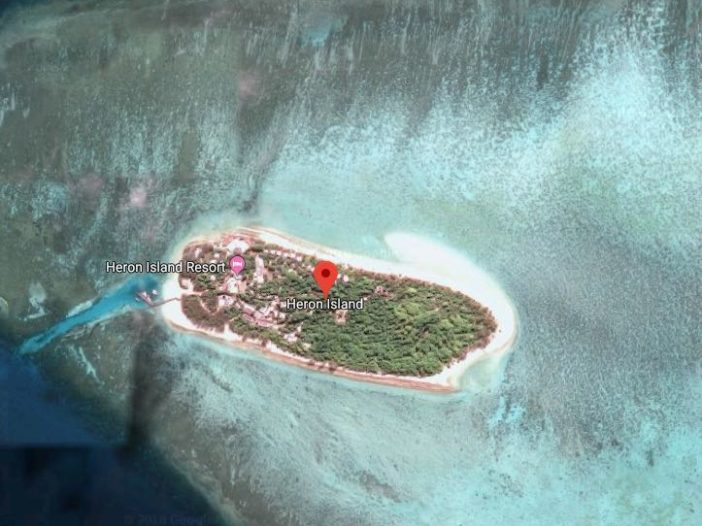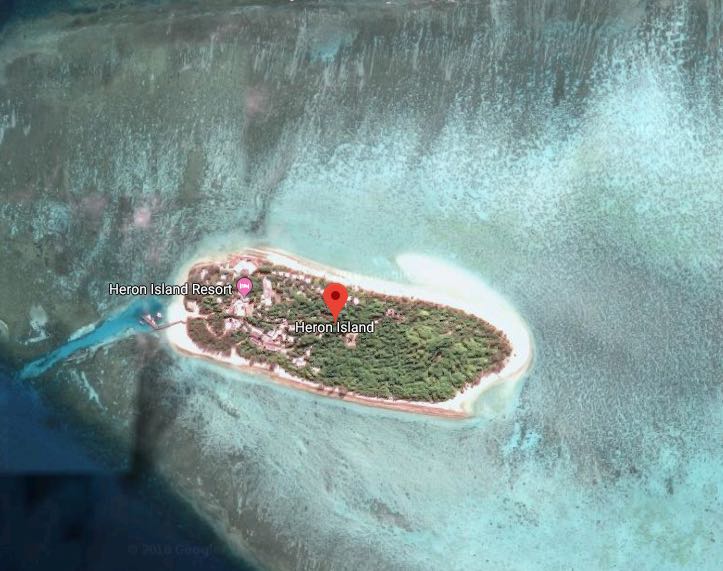

A University of Queensland-run research hub on the Great Barrier Reef will soon be more than 80 per cent solar powered, with the addition of 500kW of solar PV and a 600kWh vanadium flow battery system.
The solar and battery microgrid will installed at the Heron Island Research Station – the oldest and largest marine research station on the Great Barrier Reef – by German outfit juwi Renewable Energy, after the two companies signed an MOU last month.
The project will integrate the rooftop solar array and vanadium flow battery with existing diesel generators using a microgrid control system.
The solar and battery system is expected to deliver more that 80 per cent of the annual electricity needs of the internationally recognised research facility, and be operational in mid-2019.
The supplier of the vanadium flow battery was not specified, but One Step has asked for more information, and will update the story once that comes in.
The shift to solar on Heron Island follows the University’s announcement, in June, of plans to build a 64MW solar farm – a project that will see it become the first major university in the world to offset 100 per cent of its electricity usage through its own renewable energy asset.
The $125 million solar farm – to be built near Warwick in the state’s southern Downs region – will produce more than 154GWh a year, and adds to more than 6.3MW of solar on the rooftops of its St Lucia campus and at its research facility at Gatton and other sites.
The HIRS project, however, is the university’s first foray into off-grid renewables.
Heron Island is a 29-hectare coral cay located in the southern Great Barrier Reef area, around 80km north-east of Gladstone – a Queensland coal hub that is increasingly turning to renewables, including solar farms and tidal power.
As the HIRS website explains, it is currently home to more than 100,000 birds and is also an important sea turtle nesting ground. The Island’s only human inhabitants are those associated with the HIRS, Queensland Parks and Wildlife Service and Heron Island Resort.
The Heron Island Resort, owned by the Aldesta Hotel Group, is also making the transition to solar, telling the Gladstone Observer in February of plans to replace most of its diesel generation with PV and cut its annual energy bills by $300,000.
For juwi, the HIRS project builds on the success of its Degrussa mine microgrid, which was Australia’s largest integrated off-grid solar and battery storage facility when it began operations three years ago.
At full capacity, the project generates more than 7MW of solar power for the DeGrussa copper and gold mine in remote WA and has reduced the diesel consumption at the mine by over 5 million litres a year.
“Hybrid power solutions offer the potential to significantly reduce the amount of diesel consumption in often pristine environments whilst maintaining reliability,” said juwi global head, Dave Manning in comments on the Heron Island project.
“On top of that hybrid power stations now generate electricity at a lower cost than traditional fossil fuel power stations,” he said.
“We are looking forward to working with the University of Queensland to deliver this landmark project on the Great Barrier Reef.”

Sophie is editor of One Step Off The Grid and deputy editor of its sister site, Renew Economy. Sophie has been writing about clean energy for more than a decade.

